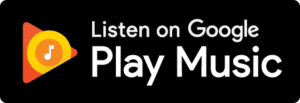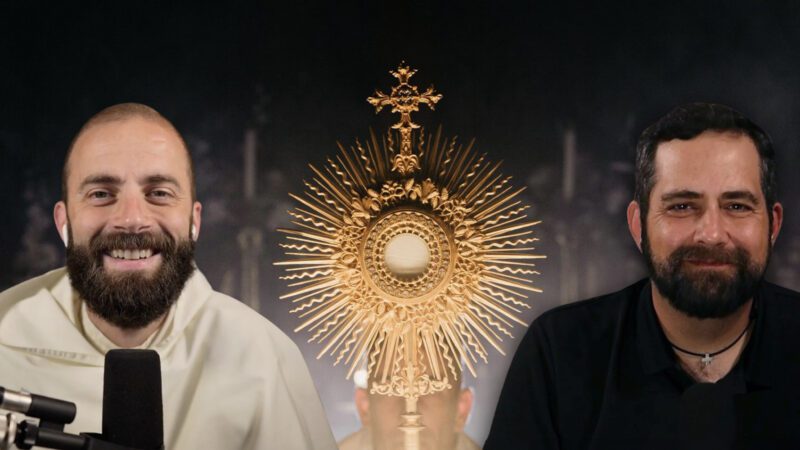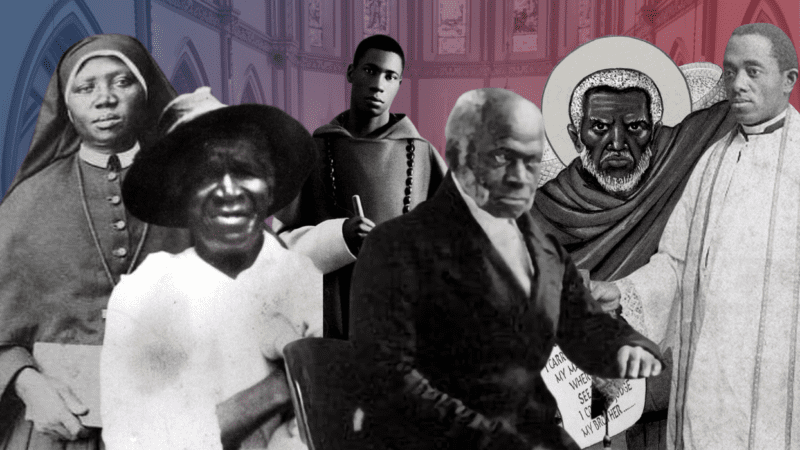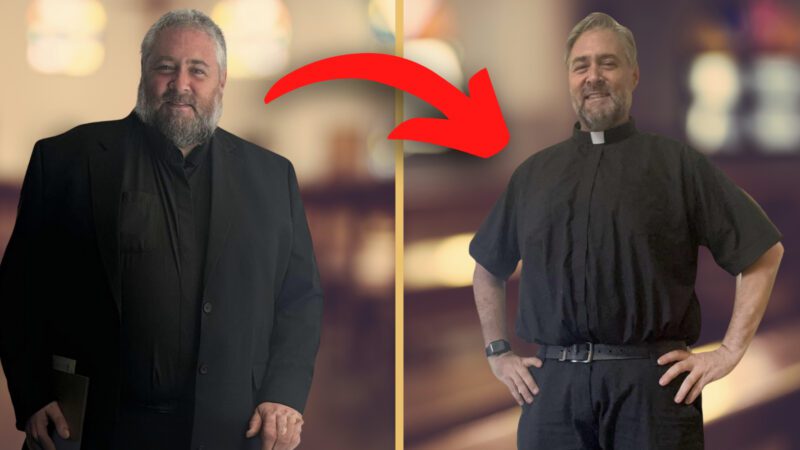In this episode of The Catholic Talk Show, the guys dispel myths about the Dark Ages and explore the contributions of the Catholic Church that helped create the modern world.
In this episode you’ll learn:
• Why no scholar uses the term “Dark Ages”
• How the myth of the Dark Ages got started
• How the medieval Church created colleges
• How the medieval Church created hospitals
• and much more!





You Might also like
-
What Catholics Believe About The Eucharist (With Fr. Gregory Pine)
In this episode of The Catholic Talk Show, Ryan is joined by Fr. Gregory Pine, O.P. to discuss what Catholics believe about the Eucharist.
Episode 334:
In this episode, we will discuss:
• Is The Eucharist JUST a symbol?
• How The Eucharist MAKES us Holy
• How To Develop a Eucharistic Identity
• Why The Modern World Needs The Eucharist
• and much more🔴 ► GET THE BOOK “YOUR EUCHARISTIC IDENTITY”
A Sacramental Guide to the Fullness of Life by Fr. Gregory Pine, O.P.
https://ignatius.com/your-eucharistic-identity-yeip/🔴 ► SUPPORT THE CATHOLIC TALK SHOW ON PATREON
Become a supporter of The Catholic Talk Show on Patreon and get awesome gifts like mugs, hoodies, exclusive access, and more: http://bit.ly/SupportTheCatholicTalkShow
Post Views: 2,613 -
8 Black Catholics Everyone Should Know
In this episode of The Catholic Talk Show, the guys are joined by seminarian Justin Farr from BlackCatholic to explore 8 holy Black Catholics everyone should know about.
Episode 124:
In this episode, we will discuss:
• The amazing story of the first Black American priest
• The former slave known as the “Angel of Charity”
• How black Catholics overcame racism in America
• Who is the patron saint of mixed-race people?
• and much moreShow Notes
Follow Justin Farr:
http://theblackcatholic.com/
https://www.facebook.com/TheBLACKCATHOLICThe National Black Catholic Congress:
https://www.nbccongress.org/Predominantly African American Parish Finder:
https://www.usccb.org/committees/african-american-affairs/parishes-strong-black-catholic-presence
Post Views: 7,658 -
How A Catholic Priest Lost 100 Pounds In A Year
In this episode of The Catholic Talk Show, Ryan is joined by Fr. Sam Medley, SOLT to discuss how he lost 100 pounds in a year using simple diet and exercise methods combined with spiritual principles.
Episode 307:
In this episode, we will discuss:
• How Virtue Is Key To Changing Your Life
• Why Physical Health Impacts Spiritual Health
• Where To Start When Losing Weight
• A Simple Plan To Get Healthy in 2025
• and much more— VISIT OUR SPONSORS —
🔴 ► TRY HALLOW FREE
Get the #1 Catholic prayer app Hallow now!
https://catholictalkshow.com/hallow🔴 ► JOIN EXODUS 90
Exodus 90 Starts January 20! Exodus 90 is the #1 Catholic Men’s App to help you become the man you were created to be.
https://catholictalkshow.com/exodus🔴 ► SUPPORT THE CATHOLIC TALK SHOW ON PATREON
Become a supporter of The Catholic Talk Show on Patreon and get awesome gifts like mugs, hoodies, exclusive access, and more: http://bit.ly/SupportTheCatholicTalkShow
Post Views: 3,484










Cool ideas but you’ve missed the mark a bit:
“Dark Ages” was coined by the humanists in the early renaissance.
Francesco Petrarca in particular came up with the term and he lived in the 1300s around the time of Boccaccio and Chaucer, right after Dante, Francis of Assisi, Giotto and Cimabue.
Not exactly. Yes, Petrarch wrote: “Amidst the errors there shone forth men of genius; no less keen were their eyes, although they were surrounded by darkness and dense gloom”. But this is not the end of the story, nor does it include the term “Dark Ages”.
But, It was in Volume X (1602) of Annales Ecclesiastici that Cardinal Baronius coined the term “dark age” for the period between the end of the Carolingian Empire in 888 and the first stirrings of Gregorian Reform under Pope Clement II in 1046.
But the term got its weight and commonly understood meaning from Protestant writers such as Gilbert Burnet, or Enlightenment figures like Voltaire or Kant.
True.However, one could argue that some of the Renaissance humanists were closer to Enlightenment ‘philosophes’ than to Bonaventure, Aquinas, Albert the Great, et cetera.
Hi guys,
This was one of your best podcasts and thank you for re-establishing what I already knew about the “Dark Ages” and what I learned today. You did a great job. The establishment of colleges, hospitals, philosophies studies, theology, canon law etc. were all things I learned but they were just briefly touched upon and I either did not know or had forgotten about papal charters for Oxford, Cambridge, cathedral schools or universities, etc. I always think Chaucer when I think of this time period. I should re-visit his works. I learned the first notes written down were for the Gregorian Chant which makes so much sense for that time in history. The Church was the center of learning. It was the patron of the arts as it could afford to be.
Thanks for the origins of the word gamut or running the entire gamut. I am a wordsmith.
Ryan Scheel is a self-educated soul who is essentially uptight or very intense. Ryan Della Crosse is his opposite as far as keeping it loose. Sometimes a little too loose. Fr. Rich is in between and one is always aware of his love for his vocation. You make a good mix of moderators. Ryan S. does a good job of reining in Ryan D. and Fr. Rich when they get carried away with their own humor. What shines through all of you is your love of your God and being Catholic.
There was a documentary, perhaps PBS, that once that showed viewers the Book of Kells and the workmanship was incredible and so poetic and beautiful as well as mystical. It has an aura of mysticism about it. I remember we only got to view a small portion of it and it was handled by people using plastic gloves. It is sacred for sure.
Fr. Rich, good point, some people never leave their own personal version of the ‘dark ages’ behind them. They carry the bad times with them throughout their lives and it colors how they live and how they view the world and its people.
Ryan S., you are right, the Internet has become our new Wikipedia and encyclopedia britannica and so much more. It is the world’s depository of information. We would be plunged into another version of the ‘dark ages’ if we were permanently unplugged.
Thank you for an excellent podcast and what we have learned. God bless us everyone as Tiny Tim would say!
I’m actually pretty shocked at this podcast- the first five minutes where the commentators tell how the Dark Ages were mainly caused by an English propaganda campaign against Catholics……??????? How could you do a show about the Dark Ages and not mention all the Christian people that the Catholic Church had killed seems pretty unbalanced (and kinda sick) to me.